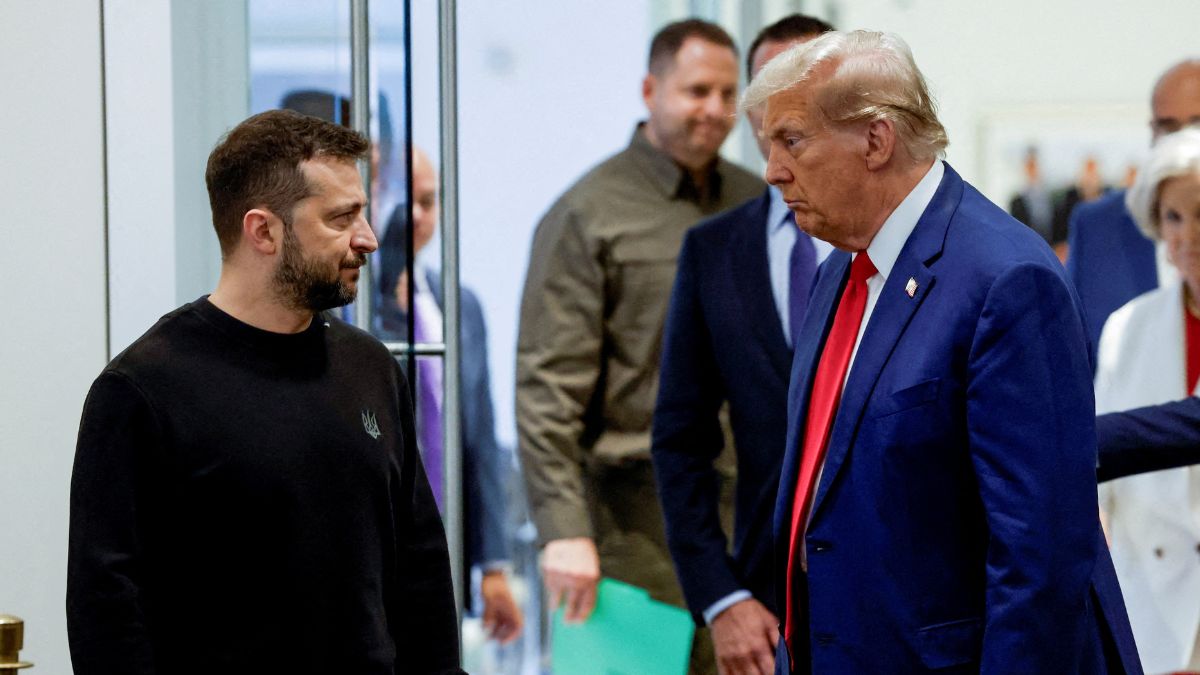Former United States President Donald Trump has won another term at the White House as he secures a decisive victory at the 2024 US presidential elections.
Trump’s re-election has however sparked intense debate around its potential impact on international conflicts, particularly the ongoing wars in Ukraine and Gaza. When Trump assumes office, stakeholders will wait and see how his administration’s policies may reshape US involvement and support in these war zones.
In his victory speech, Trump said, “I’m not going to start wars, I’m going to stop wars…We had no wars, for four years we had no wars. Except we defeated ISIS.”
How will Trump’s victory affect the Russia-Ukraine war?
Trump has repeatedly claimed he would "end the war in Ukraine in 24 hours" if re-elected, though he has yet to detail the specifics of his plan. Analysts speculate that Trump’s strategy might involve pressuring Kyiv to reach a settlement with Russia, potentially involving territorial concessions to Moscow.
His stance has raised concerns among Ukrainian officials and NATO allies, who fear a possible halt in military support critical to Ukraine’s resistance.
Ukrainian President Volodymyr Zelenskyy congratulated Trump on his win in a post on X and recalled their meeting in New York in September.
Congratulations to @realDonaldTrump on his impressive election victory!
— Volodymyr Zelenskyy / Володимир Зеленський (@ZelenskyyUa) November 6, 2024
I recall our great meeting with President Trump back in September, when we discussed in detail the Ukraine-U.S. strategic partnership, the Victory Plan, and ways to put an end to Russian aggression against…
Since Russia’s invasion in February 2022, the US has allocated more than $108 billion in aid to Ukraine, according to the Kiel Institute of the World Economy. This figure includes military, humanitarian, and economic assistance.
Kyiv’s reliance on this aid has been essential in holding off Russian advances in both the Donbas and southern Ukraine. Any reduction or cessation of this support would significantly weaken Ukraine’s defence capabilities.
Also Read: Why a negotiated end to the Ukraine War is difficult now
Trump has also criticised Zelenskyy, calling him the “greatest salesman on earth” for securing such substantial aid. His running mate, JD Vance, echoes Trump’s scepticism regarding continued aid, suggesting that the US should encourage Kyiv to pursue a peace deal with Russia.
This hard-line stance has led some in Ukraine and Europe to worry that a second Trump administration could pressure Kyiv into making territorial concessions.
Will Trump’s presidency end the Israel-Gaza conflict?
Trump’s unwavering support for Israel has been a cornerstone of his foreign policy, with direct implications for the ongoing conflict in Gaza. Trump reportedly urged Israeli Prime Minister Benjamin Netanyahu to wrap up the current conflicts in Gaza and Lebanon by January.
This request, if acted upon, would likely intensify Israel’s military operations, potentially leading to further escalations in the region.
Trump’s pro-Israel stance was also highlighted in his recent statement: “Anybody who’s Jewish and loves being Jewish and loves Israel is a fool if they vote for a Democrat.”
Netanyahu was one of the first world leaders to congratulate Trump on winning another term in the White House, writing on X that the development was a “powerful recommitment to the great alliance between Israel and America.”
Dear Donald and Melania Trump,
— Benjamin Netanyahu - בנימין נתניהו (@netanyahu) November 6, 2024
Congratulations on history’s greatest comeback!
Your historic return to the White House offers a new beginning for America and a powerful recommitment to the great alliance between Israel and America.
This is a huge victory!
In true friendship,… pic.twitter.com/B54NSo2BMA
Shmuel Rosner, an Israeli commentator speaking to NPR, has noted that Trump’s re-election would likely provide Israel with more autonomy in its military strategy against Gaza, with fewer constraints from the US compared to a Democratic administration.
Speaking about Gaza, Trump’s son-in-law Jared Kushner has “advocated” for cleaning up Gaza, describing its waterfront property as “very valuable.” Kushner’s remarks have sparked both intrigue and criticism, with some viewing his statement as an indication of a possible Trump administration policy aimed at reshaping Gaza’s infrastructure, albeit controversially.
How will Trump approach Iran this time?
Another critical issue is Trump’s approach to Iran. During his first term, Trump imposed heavy sanctions on Iran, aimed at curtailing its nuclear program and weakening its influence in the region.
He has indicated that he may resume or escalate these sanctions, targeting nations that trade with Iran. “Iran was broke… now Iran has $250 billion,” Trump said that the Biden administration had revitalised Iran’s economy through softer policies.
Also Read: Trump encourages Israel to 'hit' Iran's nuclear facilities
Trump has pledged to end what he describes as the “crises” instigated under Biden’s administration, positioning his foreign policy as tougher on Iran.
During his campaign, he declared that any group holding US hostages would face severe repercussions. Currently, at least seven Americans are believed to remain in Hamas captivity, with three reportedly deceased.
Will Trump get along with NATO & EU?
In addition to these regional conflicts, Trump’s re-election has generated concerns among NATO allies. During his previous term, Trump frequently criticised NATO members for insufficient defence spending, and he even threatened to withdraw the US from the alliance. Such actions could strain US-EU relations and potentially weaken NATO’s collective security.
European leaders, particularly in the EU, are watching closely to assess how Trump’s policies might impact European security and economic support for Ukraine.
While Kamala Harris had pledged continued support for Ukraine, analysts warn that funding fatigue in the US could pose challenges for any administration. Congressional dynamics post-election could play a critical role, determining whether aid to Ukraine persists or faces new restrictions.
With inputs from agencies


)

)
)
)
)
)
)
)
)



